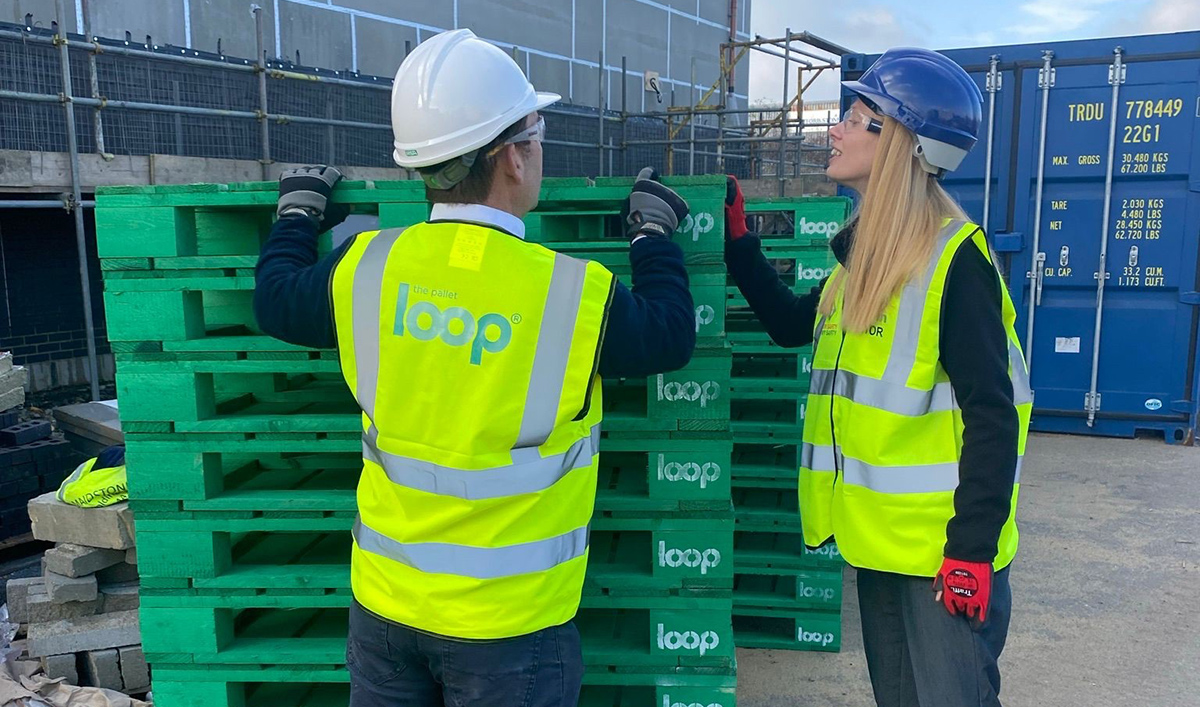
BAM has announced it has become the first adopter of a new supply chain initiative to make its use of pallets ‘become circular and cut waste’.
The contractor said that some 18 million pallets are manufactured for the UK construction industry annually, yet estimates suggest less than 10% are currently reused.
BAM has been trialling the ‘Pallet LOOP’ at some of its sites, which is said to transform how building materials move throughout the supply chain. The company signed a charter acknowledging that change is required when it comes to pallet consumption and committing to an evaluation of how The Pallet LOOP could be integrated within its business.
Dan Billinge, BAM’s head of procurement, explained, “The critical success factor here is the collaboration of the whole supply chain. Over 95% of the pallets coming onto our sites are for materials purchased by a sub-contractor and we need them to be on board as well as the suppliers and manufacturers so it’s ‘call of action’ from us to them.”
The Loop pallets are described as ‘distinctive, green, 100% FSC pallets, stronger than existing designs’. They are distributed to manufacturers, who transport products on them to construction sites after paying a deposit per pallet.
As pallets move through the supply chain, the deposit passes from manufacturer to merchant to end user. After being stacked and stored, BAM explained that The Pallet LOOP collects them, reducing site clutter and returns deposits. It then repairs and recirculates them.
Julia Messenger, BAM’s sustainability manager, added, “As COP26 takes place, and BAM is focused on building a sustainable tomorrow, we need to explore every practical avenue that helps us reduce our CO2 emissions and achieve net zero.
“The best change is one that others can support and adopt. This has much greater impact, so we are proud to champion this initiative which has great potential across our sector. It fits very well alongside our drive to become more circular, drive out waste, and reuse resources.”
Paul Lewis, founder of The Pallet LOOP, commented, “As a business, we’re committed to reducing the impact on the planet that comes from pallet use in the construction industry supply chain. We aim to sustainably manage and reduce the cost of pallets for our customers – making palletised logistics greener and leaner.
“At present, the vast majority of pallets circulating in the sector are designed for single use. The current industry specification for pallets works on the assumption that they will be scrapped or skipped once they reach their final destination. We’re turning this outdated, inefficient and linear practice on its head. In a step-change for the sector, we’ve developed a range of standardised pallets, engineered to last and to be used again and again.”








